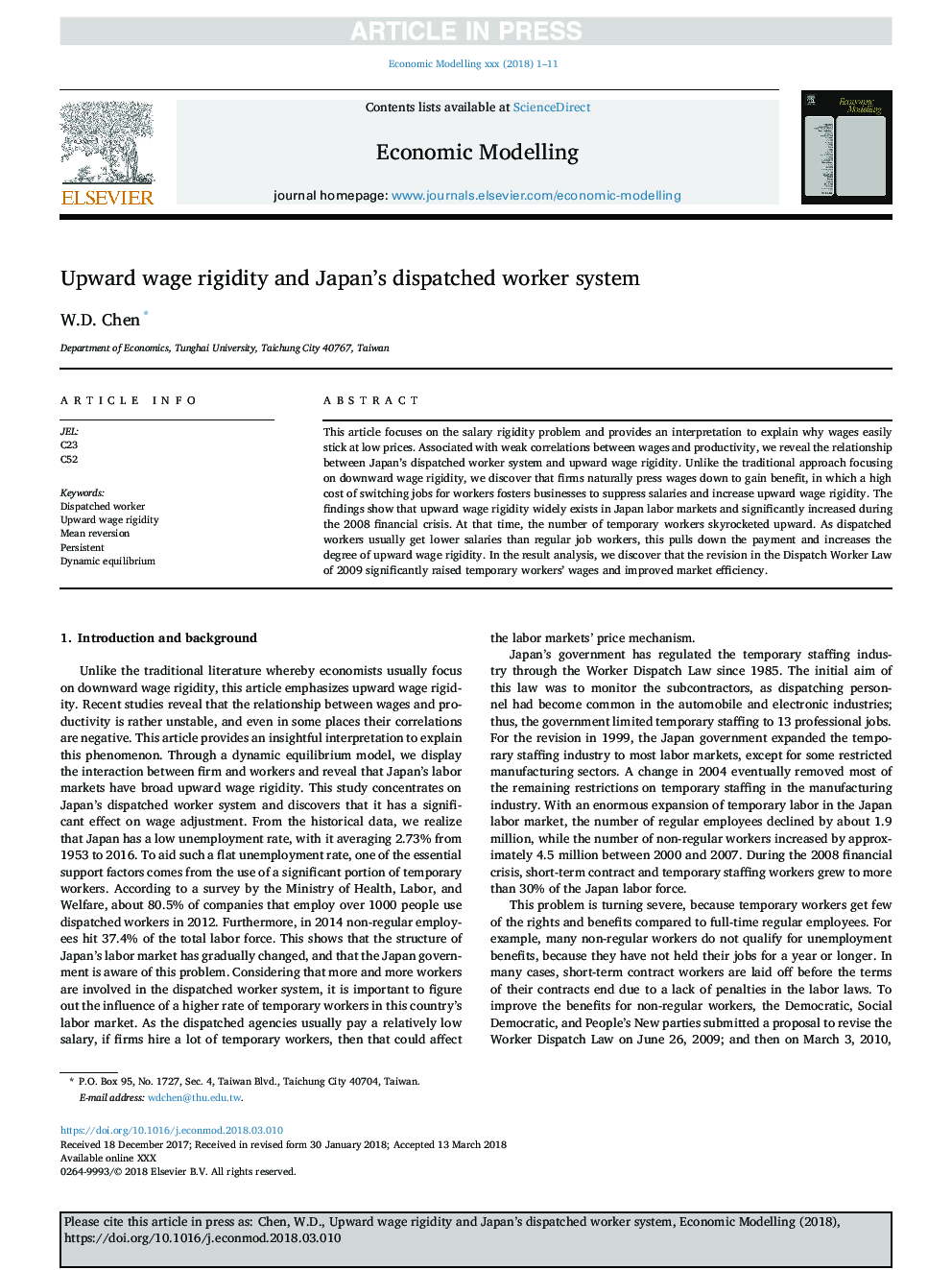| Article ID | Journal | Published Year | Pages | File Type |
|---|---|---|---|---|
| 7346763 | Economic Modelling | 2018 | 11 Pages |
Abstract
This article focuses on the salary rigidity problem and provides an interpretation to explain why wages easily stick at low prices. Associated with weak correlations between wages and productivity, we reveal the relationship between Japan's dispatched worker system and upward wage rigidity. Unlike the traditional approach focusing on downward wage rigidity, we discover that firms naturally press wages down to gain benefit, in which a high cost of switching jobs for workers fosters businesses to suppress salaries and increase upward wage rigidity. The findings show that upward wage rigidity widely exists in Japan labor markets and significantly increased during the 2008 financial crisis. At that time, the number of temporary workers skyrocketed upward. As dispatched workers usually get lower salaries than regular job workers, this pulls down the payment and increases the degree of upward wage rigidity. In the result analysis, we discover that the revision in the Dispatch Worker Law of 2009 significantly raised temporary workers' wages and improved market efficiency.
Related Topics
Social Sciences and Humanities
Economics, Econometrics and Finance
Economics and Econometrics
Authors
W.D. Chen,
